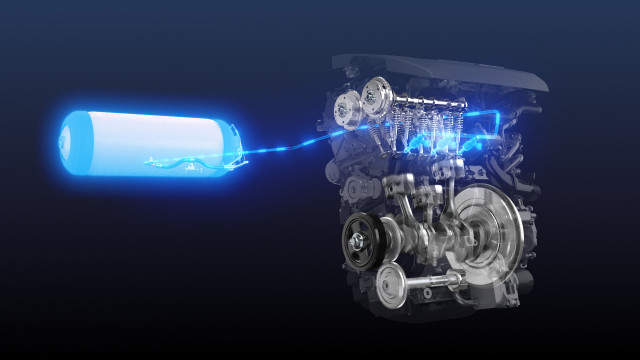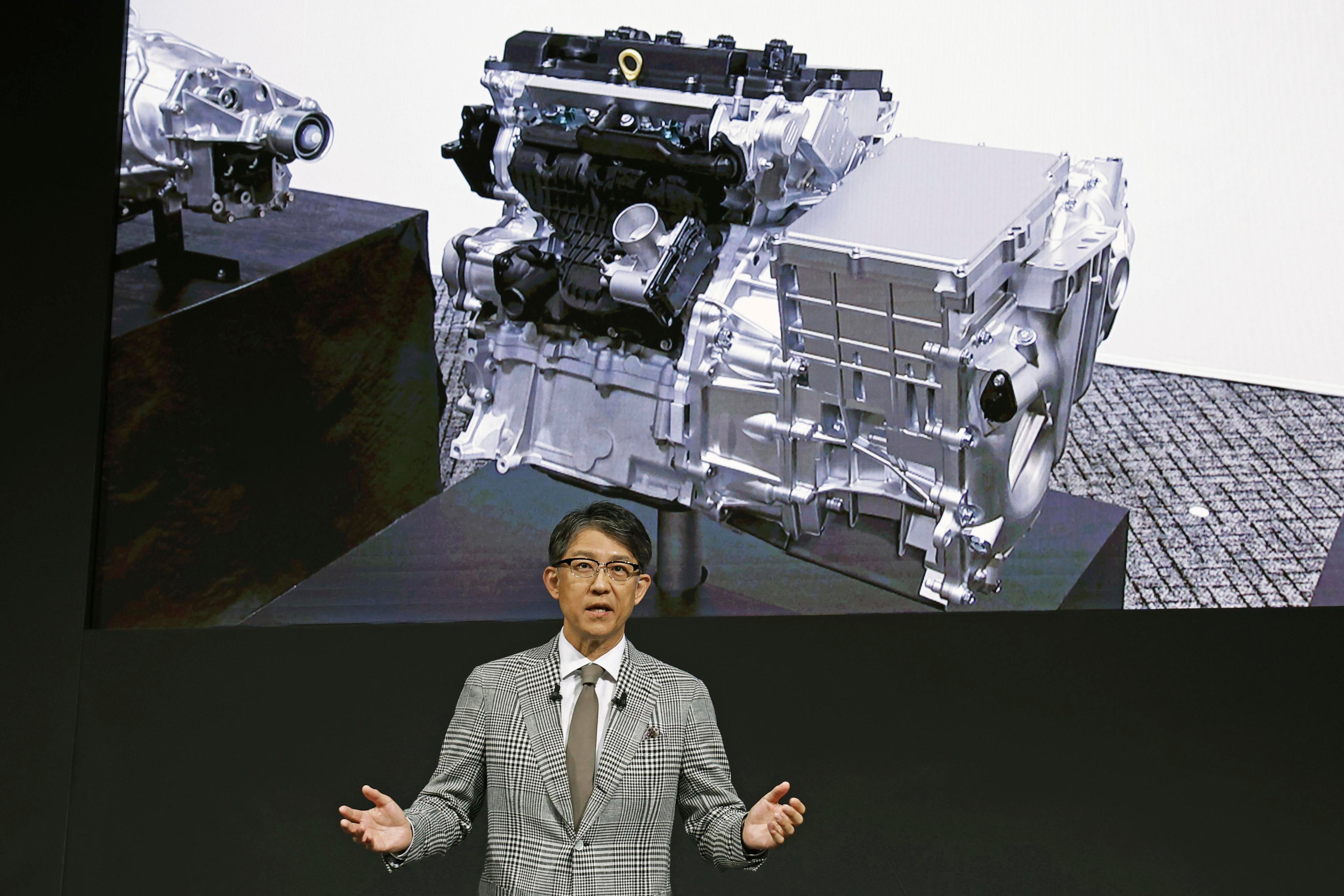This New Japanese HYDROGEN Combustion Engine Will CHANGE The Transportation Industry – meo
In a world racing toward sustainable energy, Japan is making waves with a groundbreaking innovation that could redefine the future of transportation: a new hydrogen combustion engine.
Unlike the electric vehicle (EV) revolution championed by Tesla and others, this technology revives the internal combustion engine (ICE) but fuels it with hydrogen—a clean, abundant element that produces only water vapor as a byproduct.
This development, led by major Japanese manufacturers like Toyota, Yamaha, Subaru, Mazda, and Kawasaki, is stirring controversy and excitement alike, challenging the dominance of battery-electric vehicles and igniting debates about the best path to carbon neutrality.

Japan’s pioneering hydrogen combustion engine is not just a concept but a proven prototype. For example, Toyota and Yamaha have collaborated to develop a hydrogen-powered V8 engine based on the 5.0-liter unit found in the Lexus RC F. Modified to burn liquefied hydrogen efficiently, this engine produces an impressive 455 horsepower and 398 lb-ft of torque—performance comparable to traditional gasoline engines but without greenhouse gas emissions. This breakthrough suggests that hydrogen ICEs can satisfy car enthusiasts craving power and sound while aligning with environmental goals.
One of the most significant advantages of hydrogen combustion engines is their ability to offer longer driving ranges and faster refueling times compared to battery EVs. While electric vehicles require hours to recharge, hydrogen tanks can be refilled in minutes, making them more practical for long-distance travel and commercial applications. Moreover, hydrogen engines reduce reliance on scarce and geopolitically sensitive materials like lithium and nickel, which are essential for EV batteries but pose supply chain and environmental challenges.

Japan’s first hydrogen dual-fuel tugboat, launched by Tsuneishi Shipbuilding, exemplifies how this technology is already being applied beyond cars. Equipped with a high-power hydrogen dual-fuel internal combustion engine, the tugboat can switch seamlessly between hydrogen and conventional fuels, ensuring safety and operational reliability. This maritime application signals a broader shift toward hydrogen-powered transport across various sectors.
However, the hydrogen combustion engine is not without its critics. Producing hydrogen fuel often involves energy-intensive processes, sometimes relying on fossil fuels, which can offset environmental benefits if not managed sustainably. Additionally, burning hydrogen still generates nitrogen oxides (NOx), pollutants that require advanced controls to mitigate. Infrastructure remains a significant barrier, with hydrogen refueling stations scarce worldwide and current costs high—approximately $16 per gallon equivalent—making widespread adoption challenging.

Despite these hurdles, Japan’s government is heavily subsidizing hydrogen-powered commercial vehicles and investing in green hydrogen production methods, such as capturing biogas from sewage treatment plants in Fukuoka City. This commitment aims to build an ecosystem supporting hydrogen mobility, potentially positioning Japan as a global leader in hydrogen technology.
The debate surrounding hydrogen combustion engines versus battery EVs is fierce and multifaceted. Advocates argue that hydrogen offers a complementary or even superior path to decarbonization, especially for heavy transport, aviation, and industries where batteries are less practical. Critics maintain that battery EVs are more efficient and that resources should focus on expanding electric charging infrastructure.

Ultimately, Japan’s new hydrogen combustion engine challenges the prevailing narrative that electric vehicles are the sole future of clean transportation. By leveraging existing internal combustion engine technology and pairing it with hydrogen fuel, Japan offers a compelling alternative that could preserve the driving experience many cherish while advancing environmental goals.
In conclusion, Japan’s hydrogen combustion engine represents a revolutionary step that could change the transportation industry forever. It combines performance, practicality, and sustainability in a way that forces the global automotive sector to reconsider its trajectory. Whether this technology will outpace battery EVs or coexist as part of a diversified green future remains to be seen—but one thing is clear: Japan’s bold bet on hydrogen combustion is shaking up the race for the next generation of clean mobility.